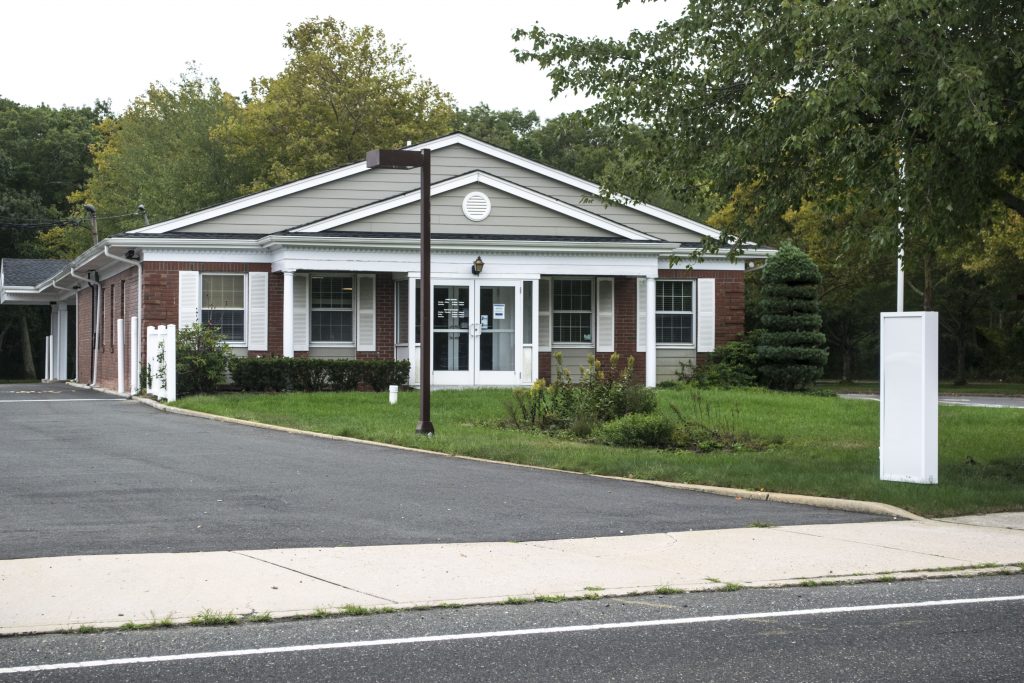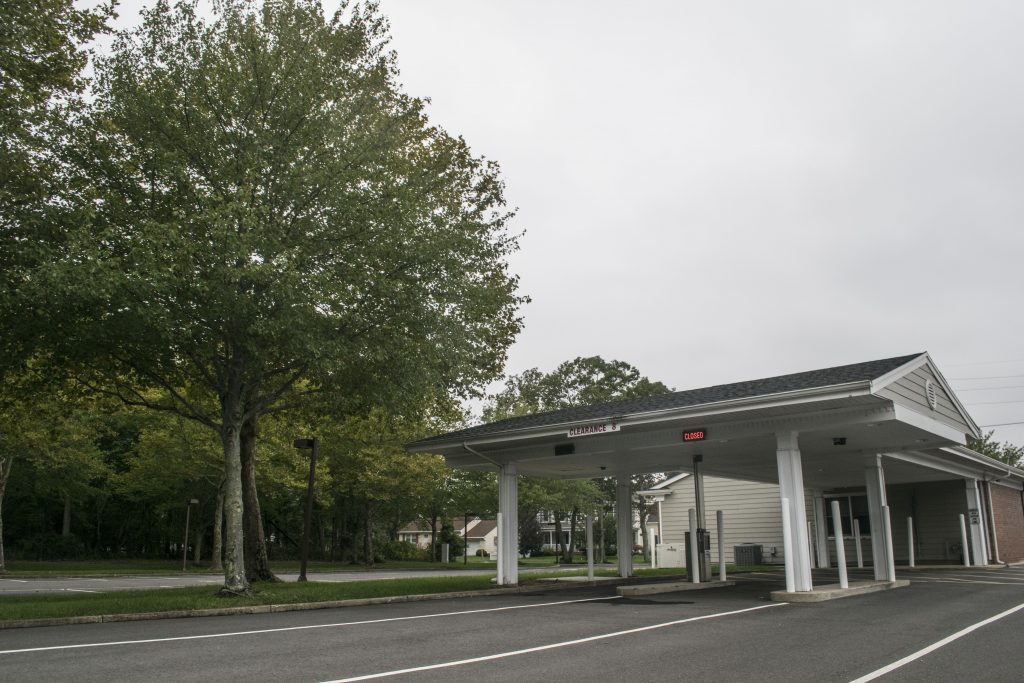
The location where a medical marijuana facility will be proposed in Brick Township. (Photo: Daniel Nee)
The owners of a medical cannabis dispensary proposed for Adamston Road in Brick have decided against moving forward with the project as initially proposed, instead deciding that the property should only be used to grow the plant.
Jersey Shore Therapeutic Health Care notified the township on Wednesday that it would forego its request to place a dispensary at 385 Adamston Road, the site of a former OceanFirst bank branch. But they will continue to move forward with one aspect of their plan: a 48,000 square foot grow house where cannabis plants would be cultivated and processed for sale elsewhere. Anne Davis, co-owner of JSTHC, told Shorebeat that there are two other local municipalities that would welcome the dispensary, which the grow house would serve.
“Clearly, we love that location for a multitude of reasons, and we still want to have our cultivation center there,” said Davis, adding that the level of opposition from neighboring residents was a factor in the decision to change the application.
|
|
“We have two other municipalities that would welcome the dispensary operation, so we felt that if that would make [the neighbors] happy – they were scared about what kind of patients would be there, they were talking about crime, traffic – if we removed the sales, they should really have no issue,” she said.
JSTHC also changed its legal counsel. Brick attorney John Paul Doyle has been replaced by Dennis M. Galvin, whose firm has offices in Toms River and Freehold. Galvin is a well-known land use and administrative law attorney who represents numerous planning and zoning boards across the state, including Point Pleasant Beach. Doyle’s handling of the application was brought into question by objectors after an affidavit filed with the township certified that notices of a January meeting were sent to neighbors Dec. 26 when postal tracking numbers showed they were sent just a few days before the meeting.
The removal of the dispensary portion of the project may have significant legal ramifications; chiefly, the Board of Adjustment may no longer have jurisdiction over the case and a use variance may not be sought for the project. In theory, if the application is switched to the planning board from the zoning board, the move makes it easier for the facility to be approved since a supermajority vote will no longer be required and the narrow criteria under which a use variance can be issued no longer applies.
The property is located in the Rural Residential (RR1) zone, which allows agricultural uses. According to the township code, the RR1 permits “customary and conventional farming operations.” Additionally, it permits “customary farm buildings for the storage of products or equipment or for the processing of farm products and which are located on the same parcel as the principal use.”
“That’s what we are – we’re a farm,” said Davis. “We said, ‘let’s do our farming operation there, and we can sell it out of town.'”

The location where a medical marijuana facility will be proposed in Brick Township. (Photo: Daniel Nee)
A Facebook page run by neighbors in opposition to the project indicated that the legal battle of the fate of the property would not be over.
“They are desperate now, because they didn’t get what they wanted,” the page’s administrator account stated. “Again we will defeat them in this battle also. Game On!”
Several commenters on the page took issue with the characterization of the cultivation facility as a “farm” within the ordinance’s definition.
“Cultivation isn’t farming, its industrial – not permitted use,” said poster Bruce Bayer.
Galvin, in his letter, said the facility would be dedicated to “cultivating and manufacturing” marijuana which he termed a “permitted agricultural use.”
Galvin’s office will submit a revised site plan that will re-utilize the former bank building as office space for the farming operation.
If the revised plan is approved, it would still need state approval before a farming operation could start. Davis said several bills are pending in the state legislature that would eliminate the need for vertical-style business models for medical marijuana, meaning a company could operate as a cultivator, retailer, or both. Davis said she is still dedicated to helping patients in need.
“It certainly helps patients because it increases supply, we can help bring down pricing, and we do have two other communities that are welcome,” said Davis. “And even if we don’t open a retail outlet, we’ll be able to supply that market.”

Advertisement

Police, Fire & Courts
South Toms River Man Charged in Violent Murder of Wife

Police, Fire & Courts
Toms River Man, 36, Charged With Failing to Register Under Megan’s Law









